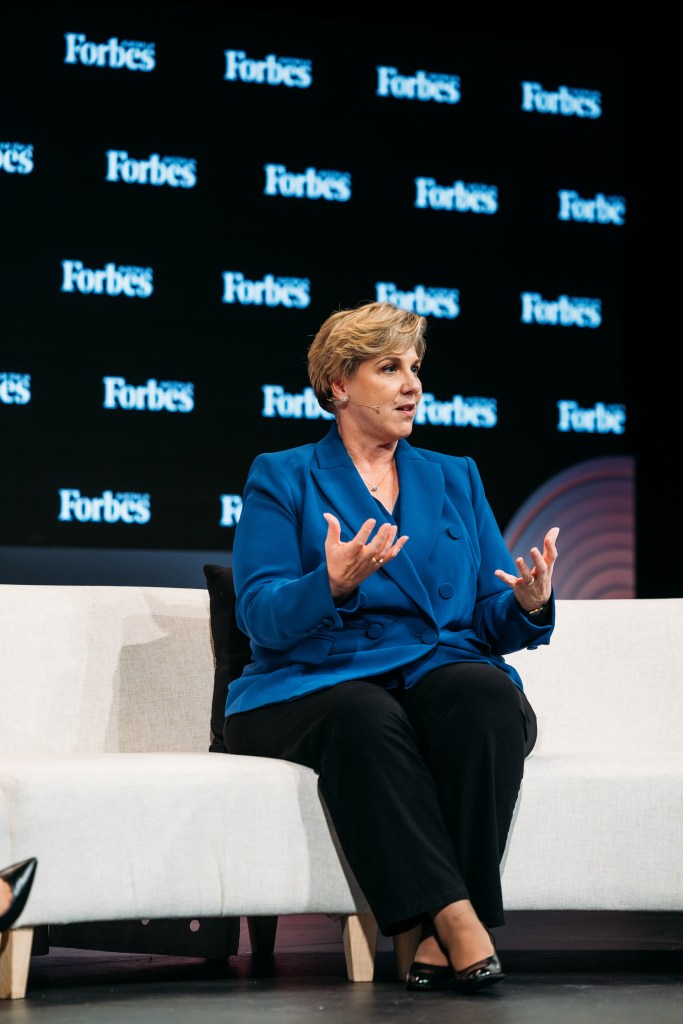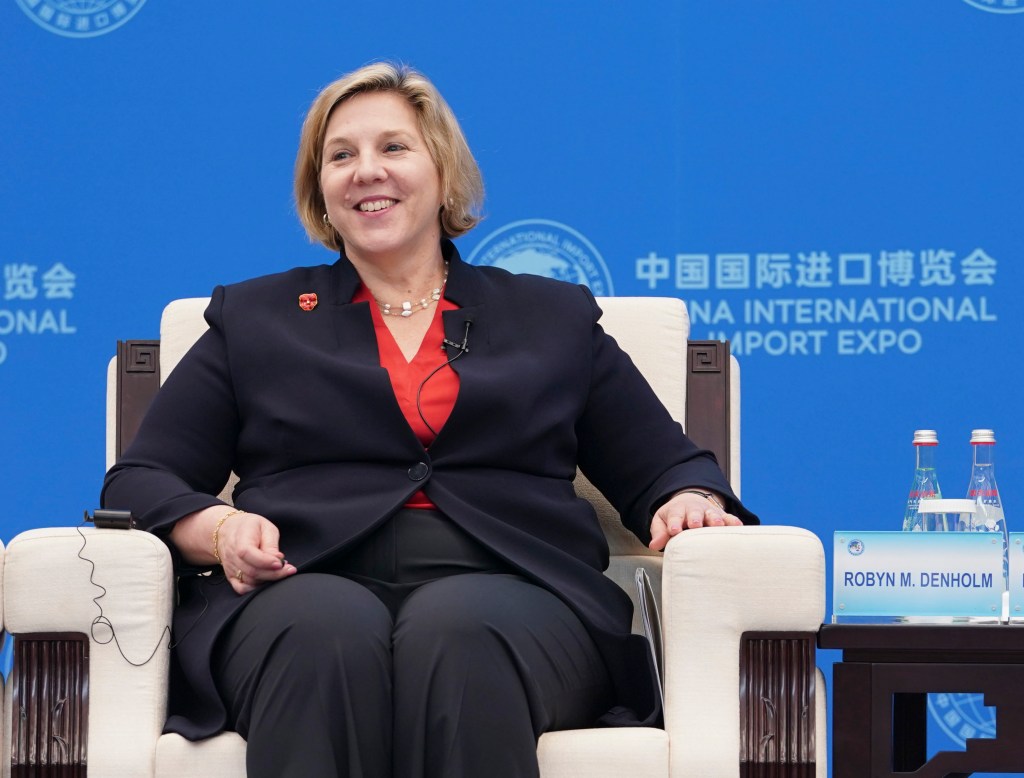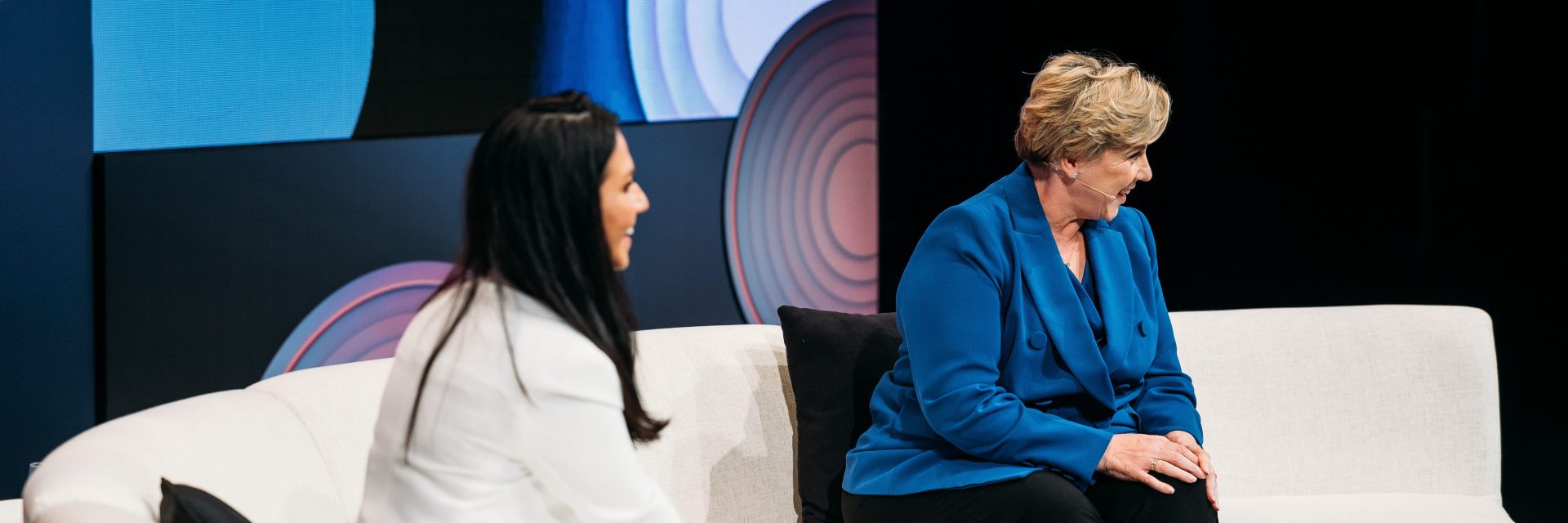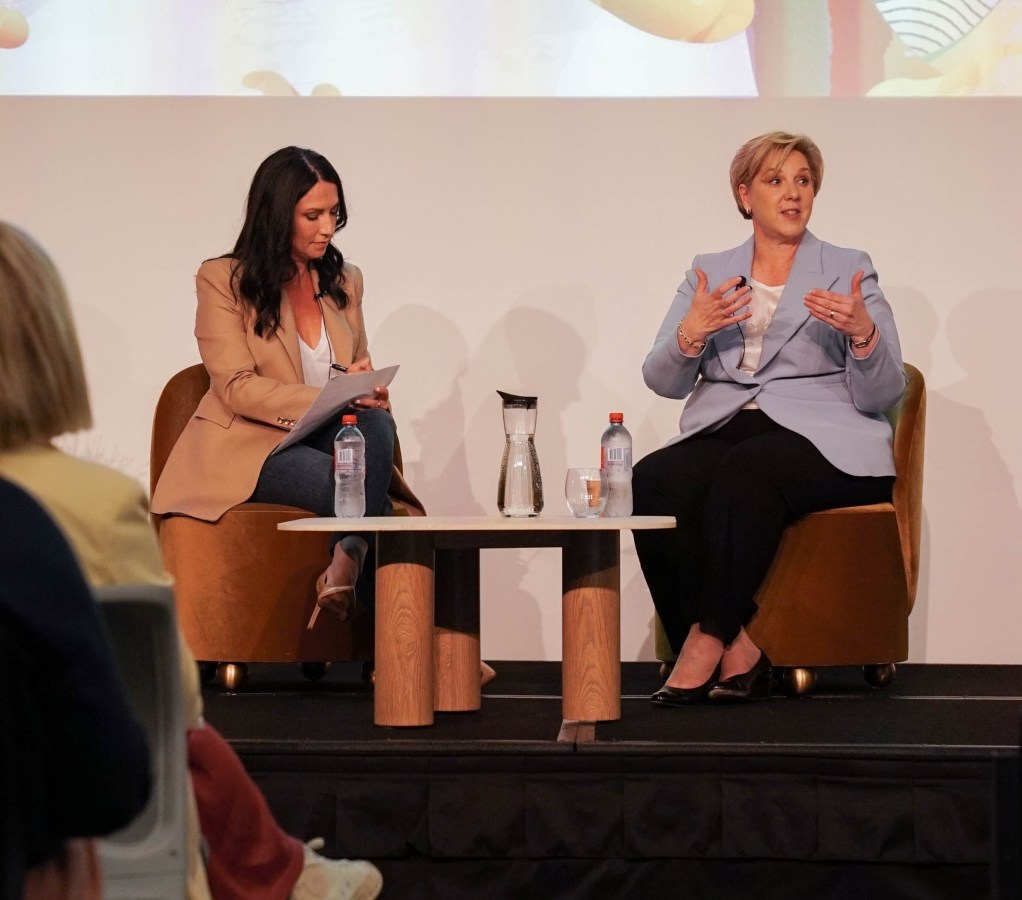Collecting failures and collecting skills were keys to her success, Tesla chair Robyn Denholm tells the Forbes Australia Women’s Summit.

Robyn Denholm Career at a Glance
- Robyn Denholm grew up in Milperra in southwestern Sydney, the daughter of Maltese immigrants from Tunisia.
- She studied economics at UNSW and worked as an accountant for Arthur Andersen in Sydney.
- After a spell for Toyota Australia, she went to the US and worked in senior roles with IT companies Sun Microsystems and Juniper Networks.
- She joined the board of Tesla Inc in 2014.
- Denholm was appointed chief operations officer of Australian telco Telstra in early 2017, before becoming chief financial officer in October 2018. Five weeks later, she resigned after accepting the role of Tesla chair.
- Denholm became a partner at VC firm Blackbird Ventures, in 2021.
As one of the most senior Australian women in the tech industry, Robyn Denholm said she had been a lifelong, and daily, collector of new skills, which she likened to the accumulation of Pokemon cards. “At the end of life, the person with the most Pokemon cards, the most skills, is the winner,” she said.
And crucial in her accumulation of skills, was failure, she said.
“I really do believe that failure is a stepping stone to success. I’ve lived it. I’ve had plenty of failures in my career – and continue to have failures.
“The one that I think might resonate with the audience was the first time I went for a CFO [chief financial officer] role at Sun Microsystems.” Denholm had risen to the number-two position in finance after 10 years at Sun, and was the anointed internal candidate to take the CFO role, she said.
“Long story short, I didn’t get the role. They decided to bring the old CFO, from two generations earlier, back … So I went home. I remember it vividly. I was furious, upset, bawled my eyes out, all the rest of it.

“Then I was like, ‘What do I do now? I could easily walk out the door.’ But I went back in and talked to the COO [chief operating officer] … I asked for a different role. I said, ‘I don’t want to be second in finance.’
“I took on the corporate strategic planning role. I said, ‘I’ll give you two years. I’ll help turn the company around and then after two years we’ll talk.’ That’s what I did. It’s a sliding-door moment that changed the course of my career.
“Those scars helped me. The next time it happens it still hurts, but it’s not quite as emotional. You’ve got to be able to shake it off and get on with it. I was even talking to somebody who I mentor this week and about a not dissimilar situation … I said, ‘You’ve got to choose whether you stay or go. You can’t be in no-man’s land. And if you stay, why are you staying? What is it doing for you as well as the company?’ And if you go, then you go. But you can’t be in this ‘I wish I would’ve or I could’ve’ because that doesn’t’ give you anything.
“You’ve got to have concentric circles of people around you. Those people who are in trenches with you whatever the circumstances and actually know what’s going. To have them as your trusted circle in how you handle criticism.”
Robyn Denholm, Tesla chair
She said that using the rejection at Sun as an opportunity to broaden her skills in corporate strategy launched her career onto a new level. “It gave me that extra set of Pokémon cards. After two years I left and became the CFO of Juniper.”
The Juniper role helped springboard her onto the board of Tesla in 2014 and ultimately into the chair role in 2018.
Denholm came under fire this year after a judge voided the US$56 billion pay package of Tesla CEO Elon Musk that she had played a role in approving in 2018.

Asked how she handled public criticism, Denholm said she had to be able to live with herself.
“The good news is I’m old and I’ve been around for a long time … so I’ve seen others get more than their fair share of bad press. I think you have to build some resilience in. The way I phrase it is you’ve got to be able to wake up in the morning and look the person in the mirror and be comfortable with the way you’re doing things.
“But you’ve also got to have concentric circles of people around you. Those people who are in trenches with you whatever the circumstances and actually know what’s going. To have them as your trusted circle in how you handle criticism.”
Forbes Australia is excited to announce the launch of Forbes Women – a global network of female business owners, entrepreneurs and change-makers. Tap here for all the details.



